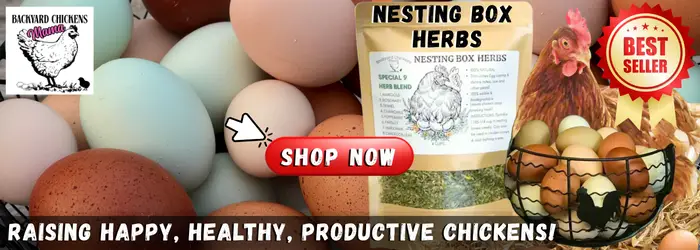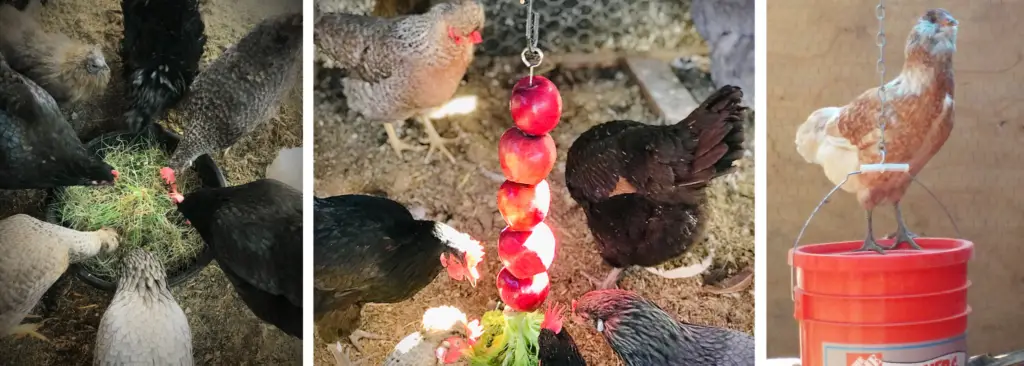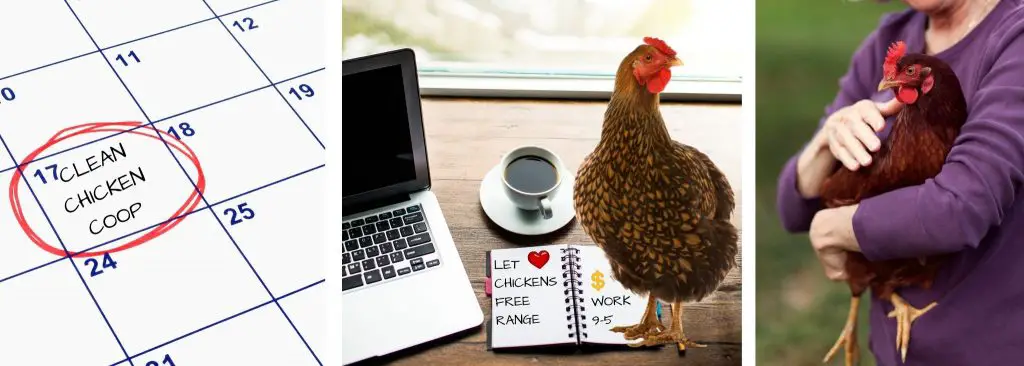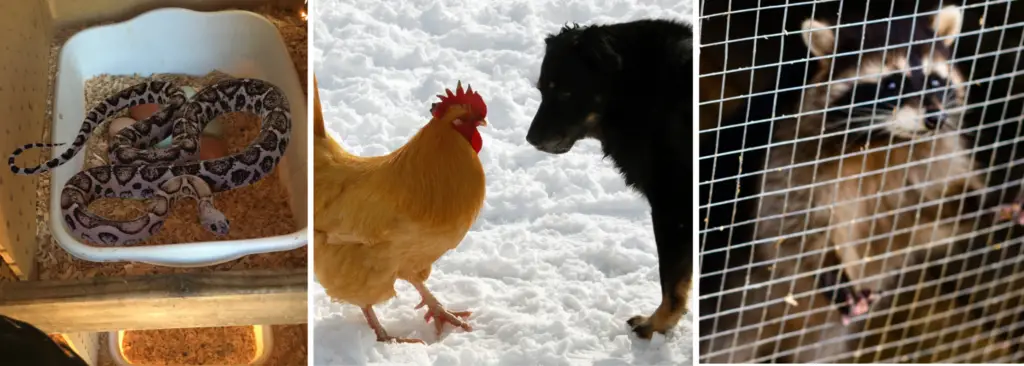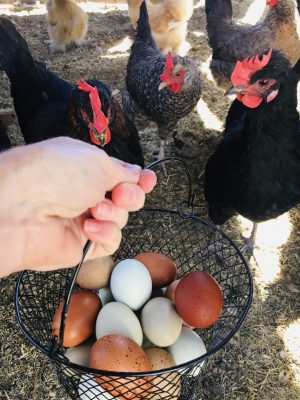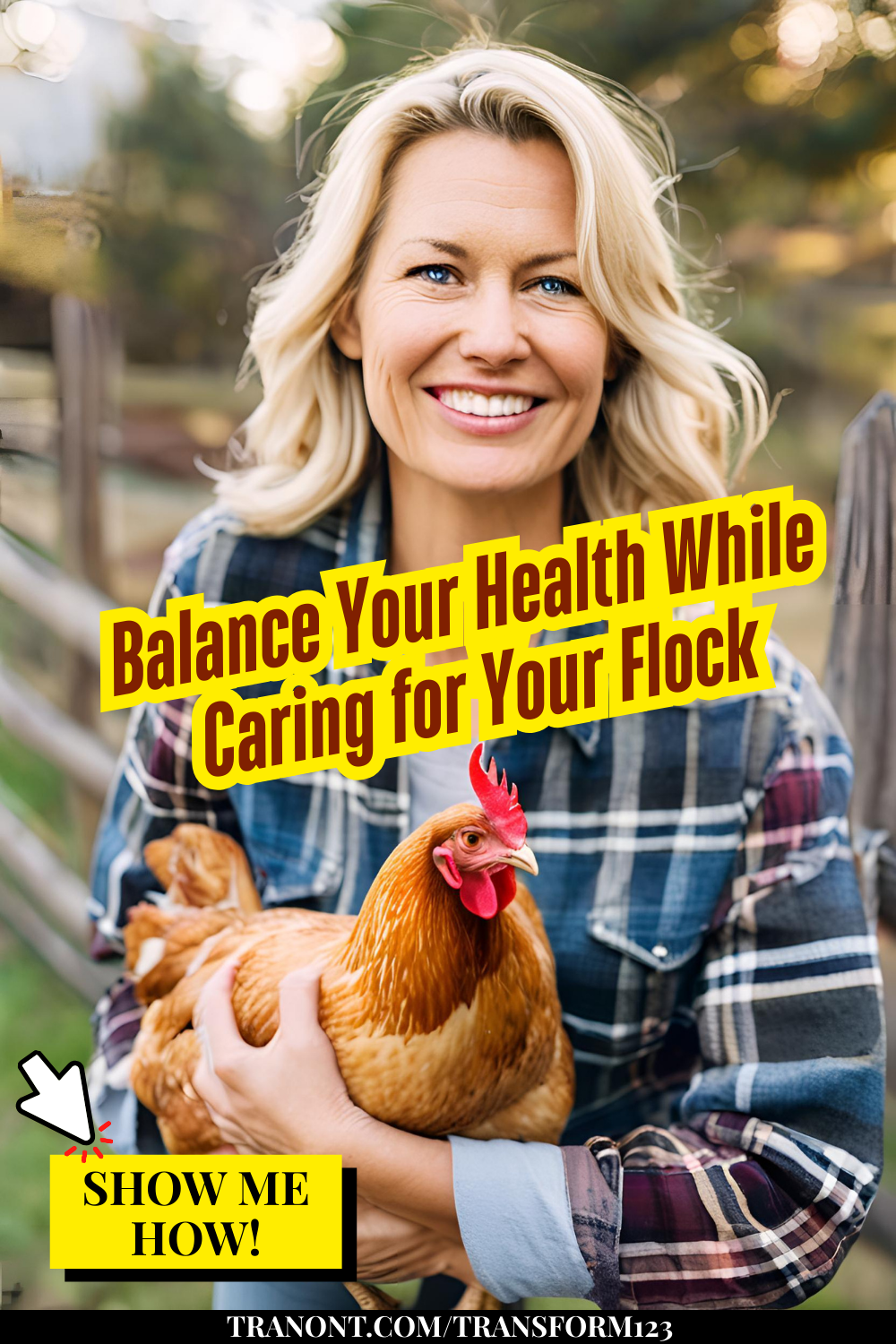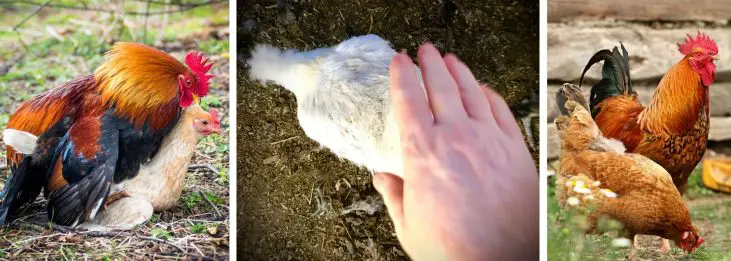
A chicken will squat or position herself in “lordosis” for various very fascinating reasons. It can signify that she is about ready to lay eggs, is receptive to breeding or she may do this to show submission when trying to establish pecking order or as a defense mechanism to protect herself from injury.
It can be quite a shock the first time you see your hen squat down as you approach her. Don’t be alarmed because this is completely natural and instinctual behavior. It makes it quite easy to catch a hen that is doing this. Take advantage of her squatting and pick her up!
5 Fascinating Reasons Why Chickens Squat Down
#1 Hen is Approaching Laying Age
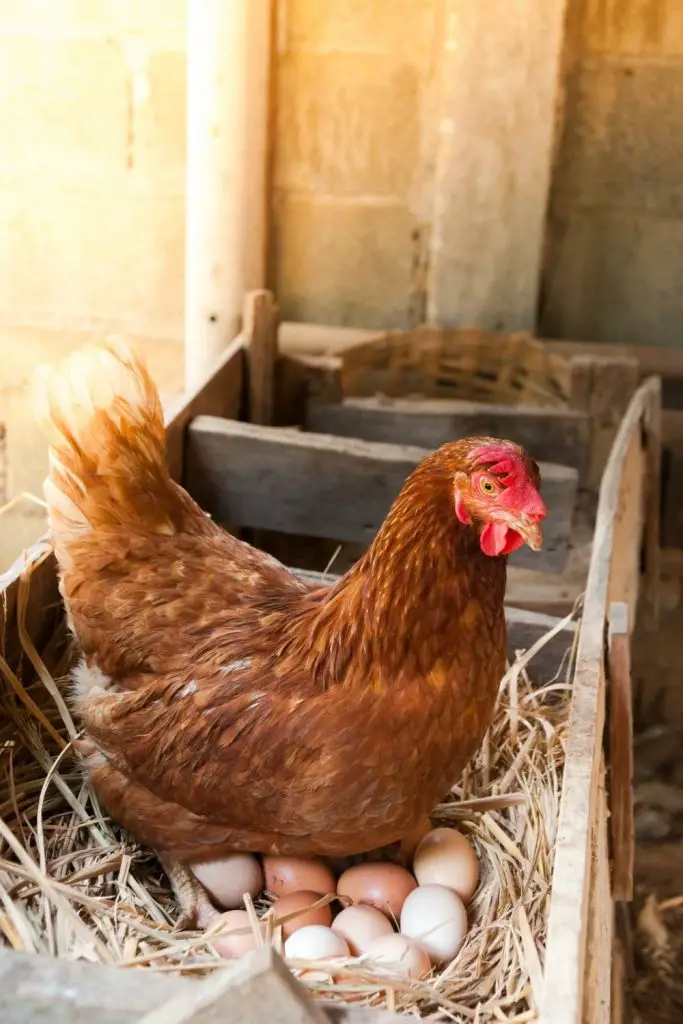
Most hens approach laying age at around 5 months of age. One way she may show this is by squatting down when a rooster, another hen or even you approach her.
Signs a Hen Will Lay Eggs Soon
- Red comb and wattles are a sign that your hen has reached sexual maturity.
- Swollen, moist and reddening of vent.
- Squatting for a rooster, other hens, or you.
- Fanning her wings out when approached by a rooster, other hens, or you.
- A hen that is about to lay will have an increased appetite. It takes increased nutrients, especially calcium, to produce an egg.
- Will show increased curiosity with the nesting boxes.
- She may become more vocal. Begins rehearsing her “egg song.”
- She may sit in nesting box and strain as she tries to lay her first egg.
- Increased space between her pelvic bones. This makes it easier for an egg to pass through.
“Pick up the bird, cradle it against your side with your arm so the tail end is facing forward, and use your hand to hold its feet. With your free hand, feel the hen’s rear end. If you can’t feel 3 distinct bones with spacing between them, the bird isn’t ready to lay yet.”
wikiHow
#2 She is Receptive to Mating With a Rooster
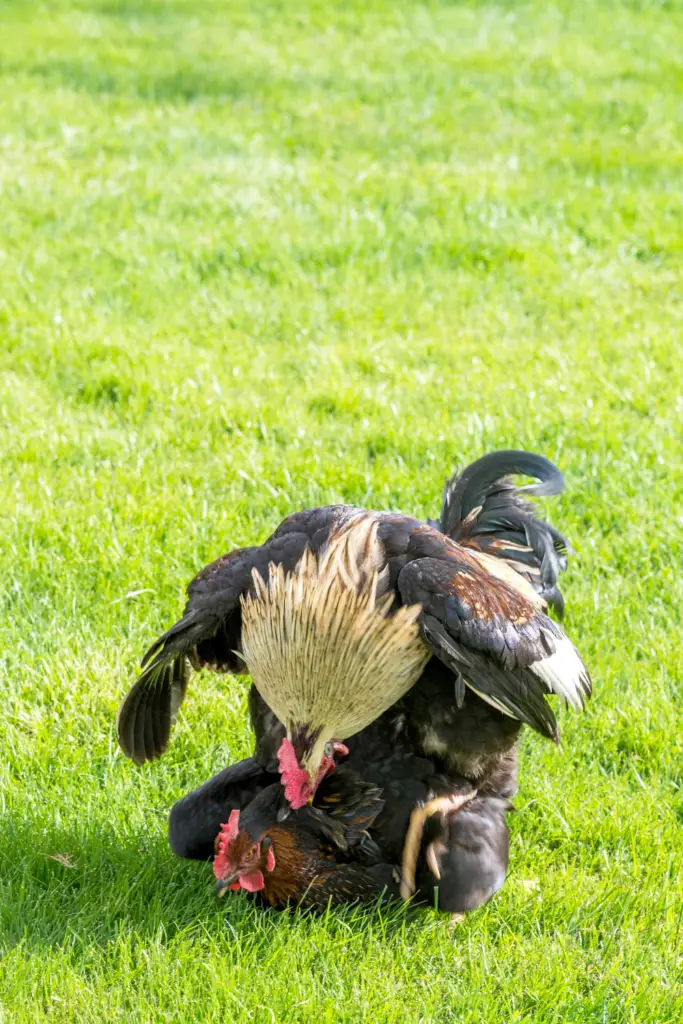
A hen reaches sexual maturity around 5 months of age. When approached by a dominant rooster, a hen will fan out her wings and squat. By doing this, she is lowering herself to the ground to make it easier for him to mount and hang on to her.
Other Typical Mating Behaviors in Chickens
- Hen will squat down if she is receptive to mating with a rooster.
- She will fan her wings out slightly, making her more stable when mating.
- A rooster may peck at a hens head that he is interested in mating with.
- Roosters will “tidbit” or dance, bobbing his head, in front of hens he would like to mate with.
- Hens will sometimes even run away from the rooster as part of the courting ritual.
Roosters will often have his “favorite” hens that he will mate with more frequently. If you notice that he is drawing blood or that he is traumatizing a few of your hens, then it is time to take action:
- Put “saddles” on your hens that are frequently mated with. These are pieces of material that you put on your hen to protect her back from the nails and spurs of the rooster.
- Clip the roosters spurs so they are not as sharp.
- Keep the roosters from being bored. Add new toys or treats to the chicken run, add new perches. This will help to keep the rooster from getting bored and getting overly aggressive with the hens.
- Make sure that the roosters diet is adequate. Roosters that are lacking in nutrients, such as salt and fiber, are likely to be more aggressive.
- Make sure that you don’t have too many roosters for the amount of hens that you have. Too many roosters can cause increased aggression between roosters and your hens getting mated with too frequently.
- As a general rule of thumb, the best rooster to hen ratio is 1:10.
- Bantam breed rooster to hen ratio is 1:6.
#3 To Show Submission
In all female flocks, a hen may crouch down to another hen. She may even mount her to show that she is dominant. This is not a sexual act, but instead a way that hens try to establish their pecking order.
Just because a hen mounts another hen does not mean that she will not lay eggs. She will still carry out her normal hen behavior. If a rooster is part of the flock, she may even mate with him and hatch out a clutch of eggs.
Chickens will puff up their chests, peck at each other and even sometimes draw blood when trying to establish where they rank within the flock. This is what they do when trying to establish a “pecking order.”
Hens will squat for another flock member, including other hens, to let them know that they see them as above them in the pecking order. It is their way of “bowing down” to a flock member that is higher in the pecking order.
#4 Hen thinks of You as a Dominant Flock Member
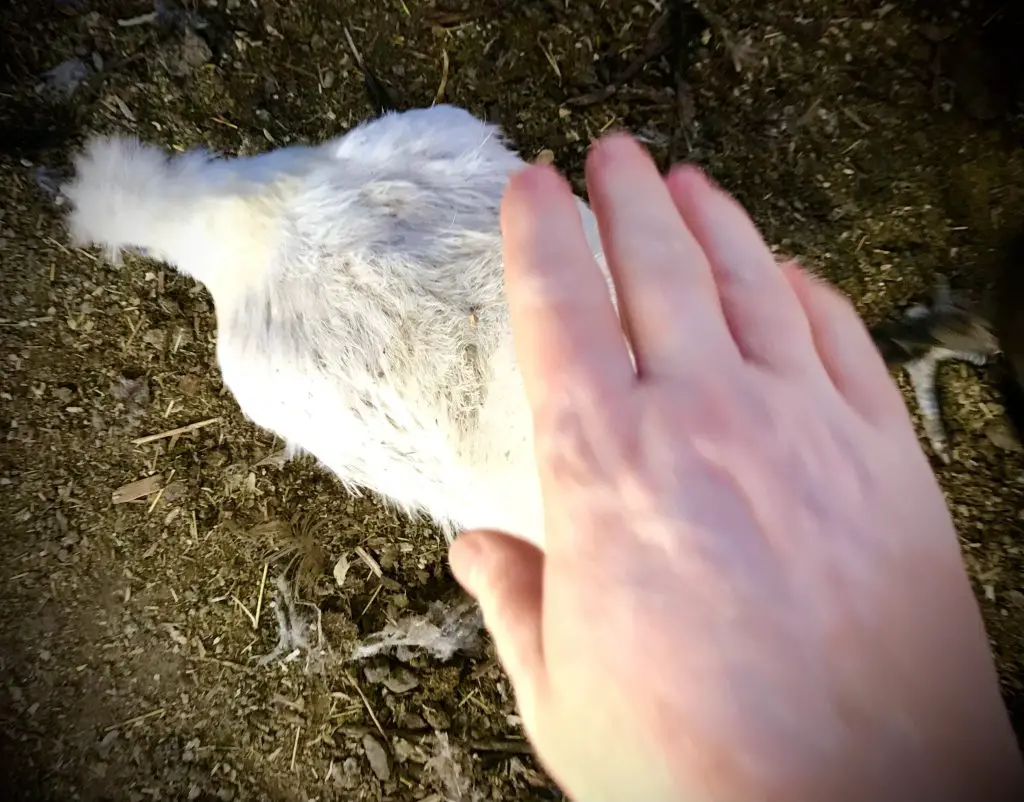
Whether or not you have a dominant rooster, your hens may still think of you as a dominant member of the flock. After all, you feed, water and take care of them every single day.
A chicken that sees you as a dominant member of their flock may squat for you as you approach it. These are the hens that I usually like holding because they are so easy to catch!
Chickens are smarter than you may think. They actually do recognize faces and voices. This is why they will come running when they see you coming or hear your voice.
#5 To Protect Herself
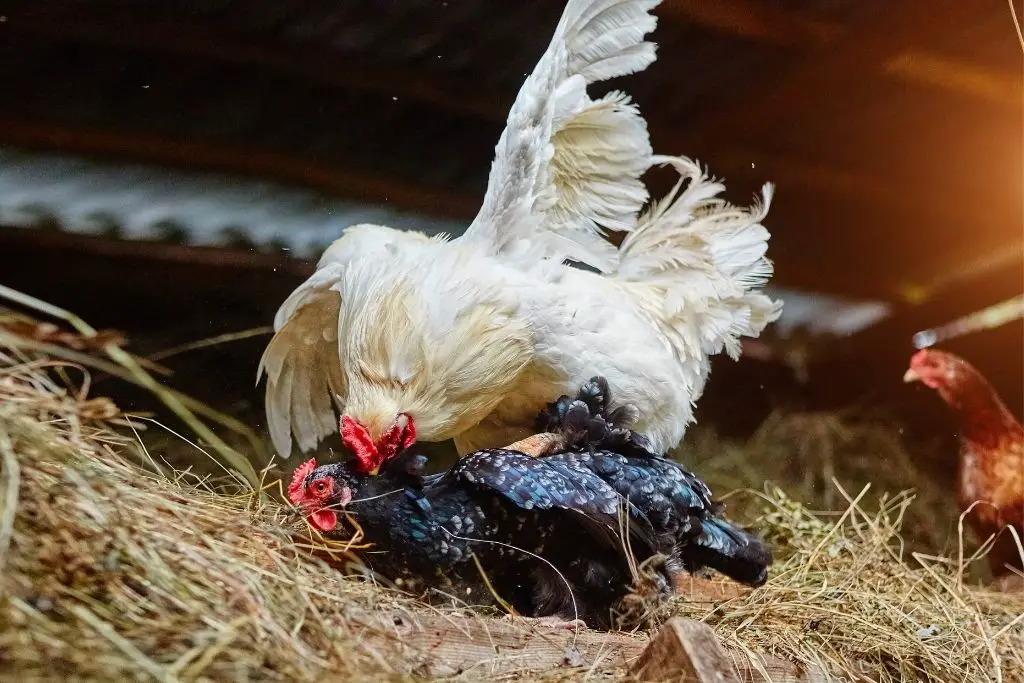
If a hen feels vulnerable, she will instinctively lower herself to the ground or squat. This helps to protect her underside or belly from being injured. She may do this as a defense mechanism during an attack or during mating with a rooster.
Mating with a rooster can be quite painful for a hen. During the act of mating, a hen will lower herself to the ground and slightly spread her wings out. This helps to keep her more stable and protected from injury from him.
CONCLUSION: Why do Chickens Squat Down? 5 Fascinating Reasons
A chicken will squat for several very fascinating reasons:
| REASONS A CHICKEN WILL SQUAT DOWN | |
|---|---|
| 1 | SHE IS ABOUT TO LAY EGGS SOON |
| 2 | RECEPTIVE TO MATING WITH A ROOSTER |
| 3 | ESTABLISHING PECKING ORDER IN THE FLOCK |
| 4 | THINKS OF YOU AS A DOMINANT “ROOSTER” |
| 5 | TO PROTECT HERSELF |
